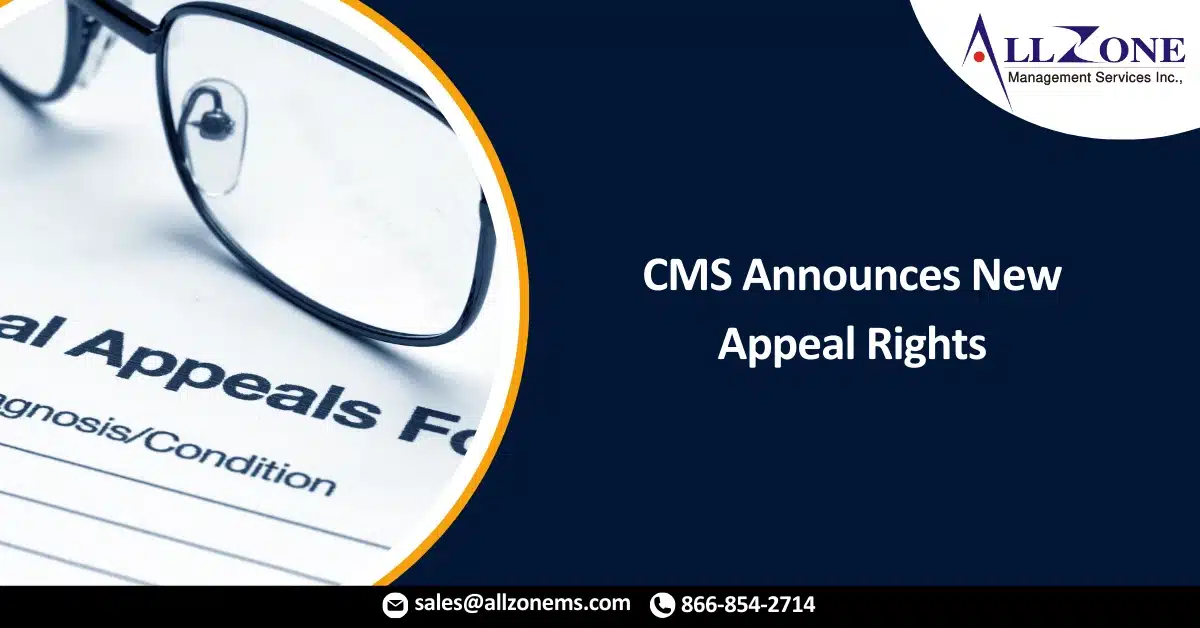Appeal rights appear much narrower than many expected.
Earlier this year, a federal appeals court issued an opinion on Barrows v. Becerra, a long-running class action lawsuit. Filed by a group of Medicare beneficiaries, the suit alleged they had to pay out of pocket for skilled nursing care—despite being hospitalized for over three days—because their stay was outpatient and did not meet the statutory requirement that part A skilled nursing benefits are only available to patients who have an inpatient admission of at least three days. The court in that opinion required that the secretary of the Department of Health and Human Services develop an appeal process for such patients. It was unclear how this process would work, and which patients would be given appeal rights.
Without fanfare, and first noted by the Center for Medicare Advocacy, CMS has released some details on the medicare.gov claims & appeals page, and the details provided seem to raise more questions than provide answers. First, CMS notes that the process for patients to file an appeal has not yet been developed. Affected patients, if they find this page on medicare.gov, will at least be able to know if they are eligible for an appeal.
But interestingly, and unexpectedly, this appeal will not be a concurrent process—as with the current Medicare inpatient discharge appeal process—but will be retrospective. Many thought that this process would be available to patients who are hospitalized and are told that their status is being changed from inpatient to outpatient via the condition code 44 process. This information will come as a relief to many, as the prospect of patients remaining hospitalized while their appeal is being adjudicated would exacerbate an already worsening capacity problem.
To be eligible for this appeal, a patient must have not only had their status changed from inpatient to outpatient (via the condition code 44 process, the only way to compliantly change a traditional Medicare beneficiary to outpatient), but they must also have received observation services after the status change, and in addition had either (1) a three or more day hospital stay and then transferred to a skilled nursing facility or (2) not have Medicare part B coverage for their hospital stay.
As this will be a retrospective process, involvement of the utilization review team in the appeal process will be limited, except perhaps to review such cases to ensure that the condition code 44 change was appropriate and compliantly executed including the required written notice being furnished to the patient. Currently, there are no specific requirements for that notice, but this process may lead CMS to develop a standard form to be provided to patients whose status is changed, to inform them of appeal rights should their outpatient stay extend for at least three days.
Since the appeal process will determine if the patient was properly changed from inpatient to outpatient, there are financial considerations. If the appeal determination is that the patient should have remained inpatient, and therefore should have had access to part A skilled nursing facility (SNF) benefits, CMS will need to establish a process to ensure the SNF refunds any payment received from the patient and pay the SNF the appropriate part A rate. Since some of these cases date back to 2009, it will be interesting to see how CMS calculates the appropriate SNF payment. The question of interest payments on those funds may also come into play but would require speculation. In addition, the hospital may need to refund any part B payments made by the patient and since the determination is that the patient should have remained inpatient, the hospital may be entitled to receiving a DRG payment for that stay, instead of the outpatient payment it received. That calculation will also be complex.
In summary, this appeal right seems to be much narrower than many expected for patients going forward. The affected patients are most likely going to be those who were hospitalized prior to the Two-Midnight rules, when long observation stays were sadly the norm, and patients were faced with paying for their SNF care out of pocket. The patient’s need for at least a three day stay after their status change with the receipt of necessary observation services should never happen today.
For More Information: cms announces new appeal rights process still to be determined

